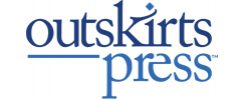I mentioned in a previous post that our most vocal critics are other publishers and competitors–hardly credible sources. Given our 99% author satisfaction rate, our authors’ comments are better sources for accurate information, as is examining 3rd party reviews of self-publishing companies and then averaging those scores to arrive upon a scale of the best firms according to a wide range of sources.
Perhaps you have even stumbled across an “outskirts press scam” topic or thread yourself without even trying, given Google’s own propensity to highlight rubber-necking results with their so-called “Google Suggest” functionality. I have discussed Google’s controversial functionality at some length in previous posts, where I demonstrated via Google screen shots that EVERYTHING is a scam according to Google, even Google.

So, congratulations! If you’ve stumbled upon this postings, you’re more than likely a victim of Google’s own manipulation — you didn’t even know you were looking for a scam until Google suggested it to you. But, if you take the time to read further into nearly any of the “scam” results Google presents for any company (whether it be for bottled water or shoes), you soon discover that you haven’t really discovered much of a scam at all.
In our case, a competitive publisher, who as far as I can tell has published less than 25 books (half of which are by the publisher herself), demonstrates her vested interest when she calls into question one of our book contests, which by the way isn’t even sponsored by us, but rather by the Colorado Independent Publishers Association. This posting, appearing on Gather.com, carries all the indicators of a questionable source that I have mentioned previously (i.e., it is written by a competitive publisher, the content is slanted and biased, the date of the posting is from 2007, and the content lacks accurate information since it wasn’t vetted for accuracy, as newspapers are).
Another posting/topic shares many of the same indicators of a questionable source. In this case, the blog was created by a small press publisher. The date of all its postings are from 2008 (in other words, 2.5 years ago!). And the content lacks accurate information (in fact, by its own admission, the content is 100% supposition) since it wasn’t vetted for accuracy, either.
It’s interesting, actually. Of the first page postings, half of the “scam” results are from competitive small presses who publish their own books, and are using this tactic to attract customers to their own business or products, since more people search for “Outskirts Press” than for their company. Heck, makes sense to me. If I was selling RC Cola, I’d write as much about Coke and Pepsi as I could. But even RC Cola can’t convince itself, much less anyone else, that it is superior to Coke or Pepsi.
Other scam postings appear because they are asking if Outskirts Press IS a scam on various Q & A sites (the answer is “no”) or because we have published many, many books on the topic of scams. “Scams” are a popular topic, in a supermarket tabloid sort of way.
And all this goes back to support my previous posting, which is… do your homework when conducting research online.
This blog posting about the legitimacy of Outskirts Press might also help.
